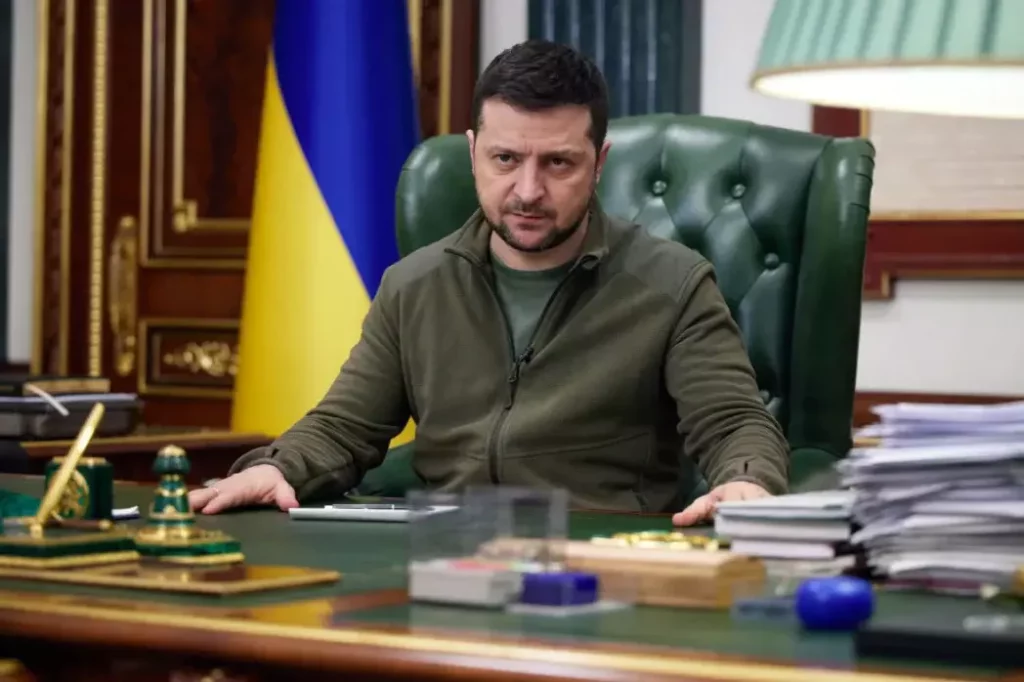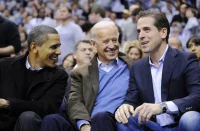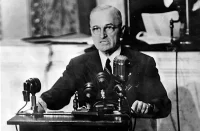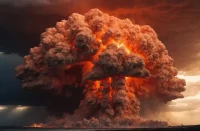Zelensky is clearly preparing his people for a ceasefire, but he’s also talking about security guarantees from NATO and his country’s alleged production of its weapon systems, both of which will rankle Russia. The US’ recent elections pressure on him is for purely soft power purposes, but it still shows that their differences on a host of issues are growing after the failed counteroffensive.
The “Kyiv Post” reported on Zelensky’s latest TV interview here, the highlights of which will be shared below and then analyzed in the larger context of the NATO-Russian proxy war in Ukraine:
* Zelensky is tacitly walking back his envisaged maximalist endgame by already declaring victory
– “It’s already clear that he [Putin] has not occupied us as he wanted. We did it, [we defended against his attack], this is already a great victory for the people.”
* He’s preparing the public for freezing the conflict along the lines of the Israeli-Palestinian one
– “We are ready to fight for a long time without losing people. It can be so. Minimize casualties following Israel’s example. You can live like that.”
* Ukraine believes that it’ll lose Western support if it invades Russia’s pre-2014 territory
– “There would be a big risk that we would be definitely left alone and on our own.”
* The “Israeli model” will likely characterize US-Ukrainian ties for the indefinite future
– “From the US, we probably have the Israeli model, where there are weapons, technologies, training, and financial aid.”
* Hard and soft security guarantees are actively being pursued
– “With the United States, it will be a more powerful bilateral treaty, with Britain – a strong one. There are states that simply do not have weapons, but they have finances, serious sanctions in case of repeated aggression.”

* An official NATO intervention could trigger World War III
– “We don’t need them, because it would be a NATO war, and that would mean the Third World War.”
* Ukraine might abandon military means for reconquering Crimea
– “I believe that it’s possible to politically push for the demilitarization of Russia on the territory of the Ukrainian Crimea. That would be better. Any combat would still have losses [casualties], wherever it is. Everything must be calculated.”
* Elections can be held next year if the West foots the bill and observers are sent to the trenches
– “If you [allies] are ready to give me 5 billion because I can’t just take 5 billion from the state budget. It seems to me that this is the amount needed to hold elections at a normal time. And in wartime, I don’t know what this amount is, that’s why I said – if the US and Europe give us financial support.
I’m sorry, I’m not asking for anything. I will not hold elections on credit. I will not take money from weapons and give it for elections either. The most important thing: let’s take risks together. The observers should then be in the trenches, they will need to be sent to the front line”
* Ukraine is now allegedly producing NATO weapon systems
– “We have domestic artillery on the battlefield today, using NATO-standard 155mm shells, which have never been seen before in Ukraine. We now have production and production of not one system, but several systems.”
These highlights show how drastically the conflict’s dynamics have shifted in the nearly three months since the counteroffensive began.
The first takeaway from Zelensky’s interview is that the counteroffensive failed, which is why he’s preparing the public for freezing the conflict. This is being achieved by already declaring victory, suggesting that Crimea can be reconquered through political means instead of military ones on the pretext of saving his soldiers’ lives, and referencing the Israeli-Palestinian conflict as a future model. Ahead of that scenario, he wants to reassure his people that the West will still ensure their security.
To that end, he brought up the “Israeli model” as the likely way forward for US-Ukrainian relations together with a mix of hard and soft security guarantees from other NATO countries. Zelensky also appears aware of the Western public’s growing concerns that he’s leading everyone to World War III, which might be why he explicitly ruled out invading Russia’s pre-2014 territory together with denying that he has any interest in NATO formally intervening in his side’s support.
About that, it’s already involved in this conflict via the arms, intelligence, logistics, mercenary, training, and other forms of support that it’s provided to the Ukrainian Armed Forces, but this is still below the level of dispatching uniformed troops to kill Russian soldiers. It also can’t be discounted that he’s worried about Poland unilaterally intervening in Western Ukraine, which readers can learn more about here and here, and that could be another reason why he warned that NATO troops could lead to World War III.
As for holding the now-delayed parliamentary elections sometime next year and not delaying the upcoming presidential ones that are scheduled for spring, this is a direct result of the pressure that Senator Lindsey Graham exerted on Zelensky during their meeting in Kiev last week. It’s the latest evidence that the failed counteroffensive is widening preexisting differences between the US and Ukraine all across the board, in this case over superficial commitments to “democracy”.
Readers can learn more about the latest difficulties in their ties by reviewing the following analyses:
* “A Vicious Blame Game Is Breaking Out After The Counteroffensive Predictably Failed”
* “US Policymakers Are Caught In A Dilemma Of Their Own Making After The Failed Counteroffensive”
* “The NYT & WSJ’s Critical Articles About Kiev’s Counteroffensive Explain Why It Failed”
In sum, both sides know that the counteroffensive failed, but neither wants to take responsibility for this.
A ceasefire of some sort therefore appears inevitable. The problem, however, is that freezing the conflict entails considerable reputational damage to the American and Ukrainian leaderships. Neither has yet to feel comfortable enough that their people fully blame the other for this debacle, hence why they remain reluctant to take the first step in what might then become a fast-moving process. It’s for this reason why they continue blaming each other and will likely continue doing so for the next few months at least.
President Putin made it clear on three occasions in mid-June that he was still interested in politically resolving the proxy war, but Zelensky’s latest claim that Ukraine is allegedly producing NATO weapon systems means that his reputation might also be damaged if he agrees to a ceasefire. After all, the special operation was partly commenced to demilitarize Ukraine and specifically eliminate the threat that NATO’s clandestine expansion there posed to Russia’s objective national security interests.
With Ukraine now openly producing NATO weapons systems, President Putin either has to ensure that these facilities are destroyed before agreeing to a ceasefire or informally freezing the conflict otherwise he stands to “lose face” among his domestic audience by tolerating this latent military threat. It might also be the case that Zelensky is just bluffing and could have lied about this just to make his Russian counterpart look bad in the event of a ceasefire, however, though nobody can really say for sure.
In any case, the Ukrainian leader’s latest TV interview drove home the point that the conflict’s dynamics have drastically shifted. Zelensky is clearly preparing his people for a ceasefire, but he’s also talking about security guarantees from NATO and his country’s alleged production of its weapon systems, both of which will rankle Russia. The US’ recent elections pressure on him is for purely soft power purposes, but it still shows that their differences on a host of issues are growing after the failed counteroffensive.
Looking forward, observers can expect the aforesaid to widen, but not to the point of rupturing their relations. The US-Ukrainian blame game will intensify during this period too as each side prepares their people for the seemingly inevitable scenario of freezing the conflict. As this is happening, Russia might also begin preparing its own people for the same, which could move the conflict towards the Israeli-Palestinian model by sometime next year unless something serious happens to derail this trajectory.
Source: the author’s blog














Comments